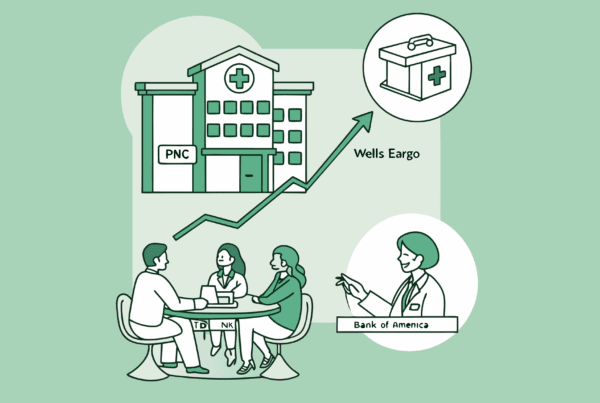Florida’s market for GI & Hepatology practices is more active than ever. Consolidation and private equity interest are creating significant opportunities for practice owners like you. This guide offers a clear look at the current landscape, what buyers focus on, and how to navigate the sale process. Proper planning is the key to maximizing your practice’s value and securing your legacy. The right approach starts with understanding your goals and options.
Florida’s GI Market: A Seller’s Opportunity
The market for gastroenterology practices in Florida is robust. It is fueled by unique factors that make it one of the most attractive states for buyers. If you’ve considered selling, the current conditions are worth a serious look. The landscape is defined by high demand and strategic interest from well-funded buyers.
Strong Buyer Interest
Private equity firms and large strategic groups are actively seeking to expand their footprint in Florida. They see the state’s growing and aging population as a reliable source of future demand for GI & Hepatology services. This is not a passing trend. It is a sustained push for consolidation that puts well-run practices in a powerful negotiating position.
Favorable Demographics
Locations near growing 55+ communities are particularly attractive. This demographic reality underpins the long-term financial stability that buyers value. Your practice’s location can be a major asset.
A Consolidating Landscape
The move toward consolidation means that independent practices have a historic opportunity. Buyers are looking for established practices to serve as platforms for growth. This creates a competitive environment where having the right strategy can lead to premium valuations.
What Buyers Are Looking For
When a potential buyer evaluates your GI practice, they look well beyond your revenue figures. They are buying future productivity and predictable cash flow. They will scrutinize your payer mix to understand revenue stability and your list of offered services, from routine screenings to complex procedures for Crohn’s or GERD. A stable, experienced staff willing to stay post-acquisition is a huge asset. Your accreditations (like AAAHC or Medicare) demonstrate a commitment to quality. Finally, they want to understand your personal transition plan. Clarity on these points from the beginning makes your practice a much more attractive acquisition target.
3 GI Practice Sale Trends Happening Now in Florida
Activity in the Florida GI market is not just theoretical. We are seeing deals close and owners achieve their goals. Here is what is happening on the ground.
- Valuations Are Strong. Practices with clear financials are attracting significant interest. We recently saw a Florida GI practice with $3.7 million in revenue and $1.2 million in adjusted earnings command a premium valuation. Buyers are willing to pay for quality and predictable growth.
- Preparation Pays Off. Sellers who prepare their practice for sale 12 to 24 months in advance are seeing the best outcomes. This involves cleaning up financials, optimizing operations, and clarifying the practice’s growth story. Buyers do not pay for potential you tell them about. They pay for potential you can prove.
- The Right Partner Matters. Buyers are looking for specific types of partnership. Some want a platform to build upon, while others want to tuck your practice into an existing network. Finding the right fit is about more than just the price. It is about securing your legacy and ensuring your team is taken care of.
Finding the right type of buyer for your practice depends on your specific goals.
Navigating the Sale Process
Selling your practice is not like listing a property. It is a structured, confidential process designed to protect you and your business while identifying the best possible partner. It begins with preparing a confidential profile of your practice that highlights its strengths. We then discreetly approach a curated list of qualified buyers. Before they can see any sensitive information, they must sign a non-disclosure agreement (NDA). The most critical phase is due diligence, where the buyer verifies your financials and operations. This is where many deals encounter problems if the practice is not properly prepared. A smooth process relies on meticulous preparation and an experienced guide to manage negotiations and anticipate challenges.
Preparing properly for buyer due diligence can prevent unexpected issues.
How Your GI Practice is Valued
The most common mistake sellers make is misunderstanding how buyers calculate value. They do not look at your revenue. They look at your Adjusted EBITDA, which stands for Earnings Before Interest, Taxes, Depreciation, and Amortization. Think of it as your practice’s true cash flow. We find it by taking your net income and adding back owner-specific expenses, like an above-market salary or personal car lease. This adjusted number gives a clear picture of profitability. That Adjusted EBITDA is then multiplied by a number (a multiple) to determine your practice’s enterprise value. The multiple isn’t random. It changes based on risk and growth potential.
| Practice Adjusted EBITDA | Typical Valuation Multiple |
|---|---|
| Under $500,000 | 3.0x 6.0x |
| $1,000,000+ | 5.5x 7.5x |
| $3,000,000+ (Platform Size) | 8.0x 10.0x+ |
A comprehensive valuation is the foundation of any successful transition.
A comprehensive valuation is the foundation of a successful practice transition strategy.
Planning for Life After the Sale
The final number on a deal is important, but it is not the only thing that defines a successful transition. What does your role look like after the sale? Many physicians we work with choose to step away from administrative burdens to focus solely on patient care. Some want a structured exit over several years. Others want to retain equity in the new, larger company, giving them a “second bite at the apple” when that entity sells again. These are not afterthoughts. They are critical deal points that must be negotiated upfront. A well-structured sale protects your financial future from unnecessary taxes and, most importantly, protects the legacy you have built and the staff who helped you build it.
Your legacy and staff deserve protection during the transition to new ownership.
Frequently Asked Questions
What makes Florida an attractive market for selling a GI & Hepatology practice?
Florida’s GI & Hepatology market is attractive due to strong buyer interest from private equity and large groups, favorable demographics like growing 55+ communities, and a consolidating landscape that creates competitive opportunities for established practices.
What key factors do buyers consider when evaluating a GI practice in Florida?
Buyers look beyond revenue to assess future productivity, payer mix for revenue stability, offered services, staff stability post-sale, accreditations like AAAHC or Medicare, and clarity on the seller’s transition plan.
How is a GI practice typically valued during a sale in Florida?
Valuation is based on Adjusted EBITDA (True cash flow) multiplied by a valuation multiple that varies with risk and growth potential. Multiples range from about 3.0x–6.0x for smaller practices to 8.0x–10.0x+ for platform-sized practices with $3 million+ EBITDA.
What are current trends in selling GI practices in Florida?
Trends include strong valuations for practices with clean financials, best outcomes for sellers who prepare 12–24 months ahead, and the importance of finding the right buyer partner focused on legacy and team security beyond just price.
What should I consider for life after selling my GI & Hepatology practice?
Consider your post-sale role, whether you want to focus on patient care without admin duties, plan a structured exit over years, or retain equity in the new company. Negotiating these deal points upfront protects your financial future, legacy, and staff.



